Upendra Mahato: The one who united Nepalis near and far

Quick facts
Born on 24 April 1962 in Siraha
Went to Shree Jansewa Secondary School, Siraha
Graduate, postgraduate and PhD from Belarusian Polytechnic Institute, Minsk, Belarus
Established the Non-Resident Nepali Association (NRNA) in 2003
Husband of Samata Prasad
Father to Kritee Mahato, Yukti Mahato and Yagyadeep Mahato

I was born to a farming family in a remote village in Siraha district. Growing up, life in general was tough. Not a lot has changed there even to this day. My family used to harvest plenty of crops but we never had enough cash. I thus had to drop out of school on multiple occasions—and, mind you, this was a government-run school.
Somehow I passed my SLC exams with a first division and wanted to study engineering. This was not because I was good at mathematics—which I was—but because one of my school teachers had told me that engineers could count the bricks of an already-standing house. I found the whole concept absolutely fascinating.
So I came to Kathmandu and applied for an overseer course (intermediate level) at Pulchowk Engineering College. I completed the course in two years and thereafter was deployed at Sunsari Morang Irrigation Project for a year.
For the graduate program, I got to study in the Soviet Union under a scholarship. In 1982, I traveled to Minsk, Belarus, where I completed my graduate, postgraduate and PhD from the same university, all without a single gap year. I did my graduate and postgraduate in hydropower engineering, something that could be used to great effect in Nepal. I then went on to complete my PhD in soil mechanics.
Earlier, in the USSR, immigrant students were banned from participating in any kind of business and had to return to their home countries within a month of completing their studies. But this ban was lifted in the late 80s and foreign students like me were allowed to do small business to make pocket money.
Before the lifting of the sanction on imported goods from the West, people in the Soviet Union had little access to Western brands. I espied a business opportunity here.
I started a business of electronic items with an investment of $600. I had a team that brought electronic goods from Germany and Singapore and sold them in the Soviet states. I was among the first foreigners in Belarus to register a company, which later became one of the largest business houses in the country. My business venture was profitable and helped me branch out in other sectors. In 1993, the Belarusian government gave me the license to import crude oil from Russia and refine it in Belarus. My expertise in soil and mining helped me to grow in this business.
We expanded our business to Russia by establishing a TV factory there. Even today, in Minsk, Belarus, my team owns the world's largest electronic supermarket, with 3,500 wholesale and retail shops. We also made forays into other sectors like road and infrastructure equipment and real estate. Privatization of governmental entities in Belarus and other Soviet Union states helped our business.
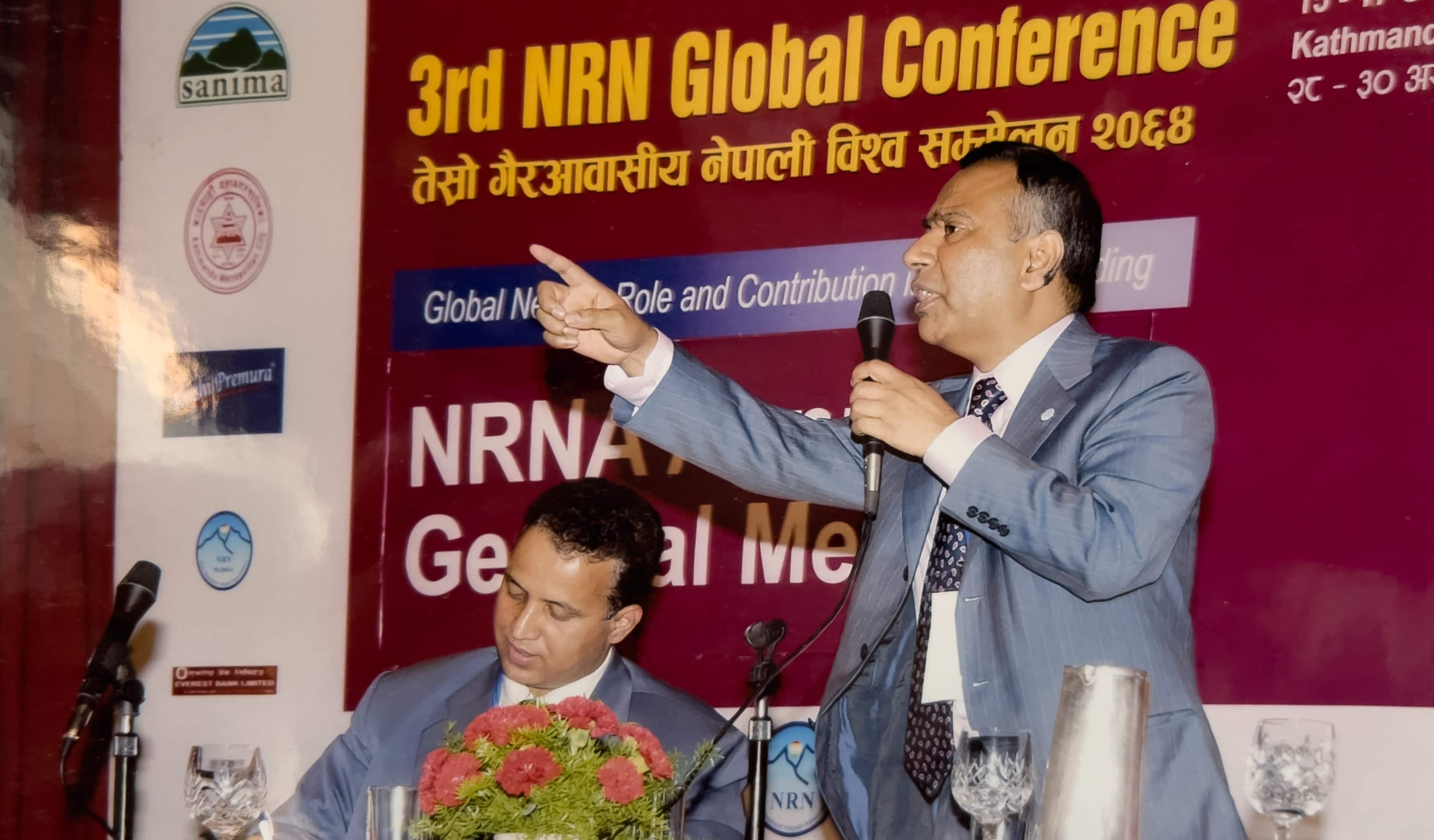 Upendra Mahato addressing the third NRN Global Conference held in Kathmandu on October 2007.
Upendra Mahato addressing the third NRN Global Conference held in Kathmandu on October 2007.
I had always dreamt of doing something for Nepal when I was living abroad. Why not, I thought, start an organization to connect all non-resident Nepalis so that they could together help their native country?
I studied the organizations of non-residential Chinese, Indians, Filipinos, etc. and found that no matter which country people live in, they harbor immense love and concern for their home country and are always willing to help their homeland. It was with this motivation that I formed the Non-resident Nepali Association (NRNA) movement.
There were many similar Nepali associations, but they lacked a strong organization and structure to work effectively. They were scattered all over the world. I consulted the focal persons of each country to organize them. At first, there was a pushback, but after several rounds of meetings they agreed to form a common body to represent the Nepali diaspora living abroad. At the time, I also met the leaders of political parties and the then royal family members, all of whom were supportive. My aim was to make this organization an independent and non-political body whose sole mission was to help Nepal grow.
After preparing the necessary framework, we established the NRNA in 2003 and held our first general conference. The original plan was to organize the first conference outside Nepal that at the time was in the grips of an escalating Maoist insurgency. But the then crown prince, Dipendra Shah, insisted that we host the conference in Nepal.
Even though we had everyone’s support, a few people were skeptical about our association. They even accused me of trying to gain political leverage. Over time, we vindicated ourselves with our work. The organization expanded gradually and worked on many projects in Nepal.
The NRNA has become politically influenced these days, but this is only natural when many people with different ideologies and beliefs come together. But the fact that political parties themselves have started angling for profits from the NRNA has made things difficult. If they were to stop the meddling and went back to our founding vision, I am sure the NRNA can still work independently for Nepal’s greater good.
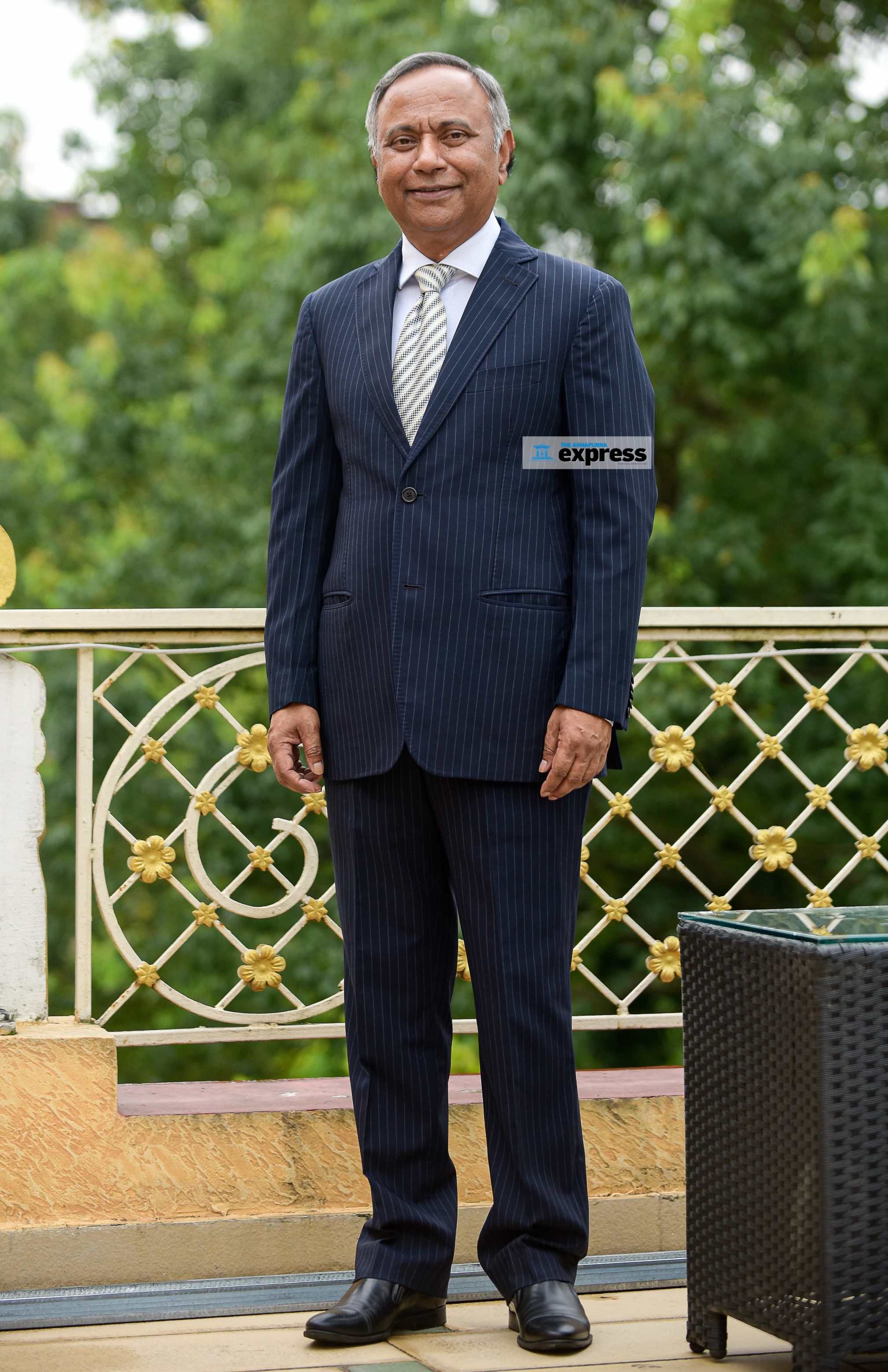
About him
Kritee Mahato (Daughter)

My father has always inspired me, not just through his work ethics but also his humility. He constantly encourages me to follow my passions and most crucially, he emphasizes the importance of having a purpose and giving back to society. Regardless of where he is in the world, his loyalty to his roots in Karjanha, Siraha and passion for building a prosperous Nepal are values that, as his children, we have grown up with and aspire to achieve.
Jugal Bhurtel (Colleague)
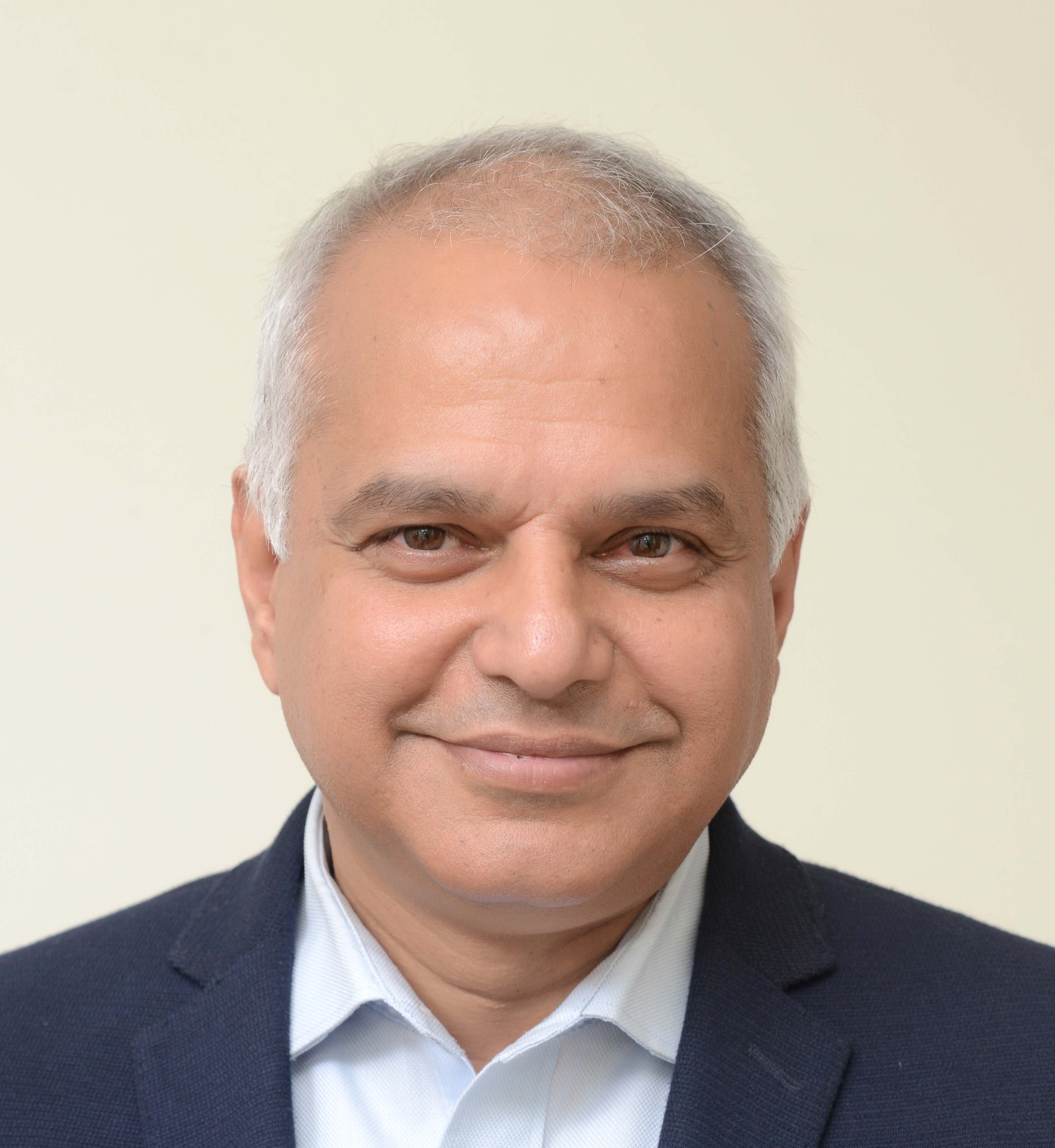
When Mahato was the president of the NRNA movement, I was the spokesperson. I have closely followed his contribution to the association. He is the kind of person who relentlessly pursues his goals. Even though he is a businessperson, he has contributed selflessly to bringing together the diverse Nepali diaspora.
Vijay Kumar Panday (Friend)
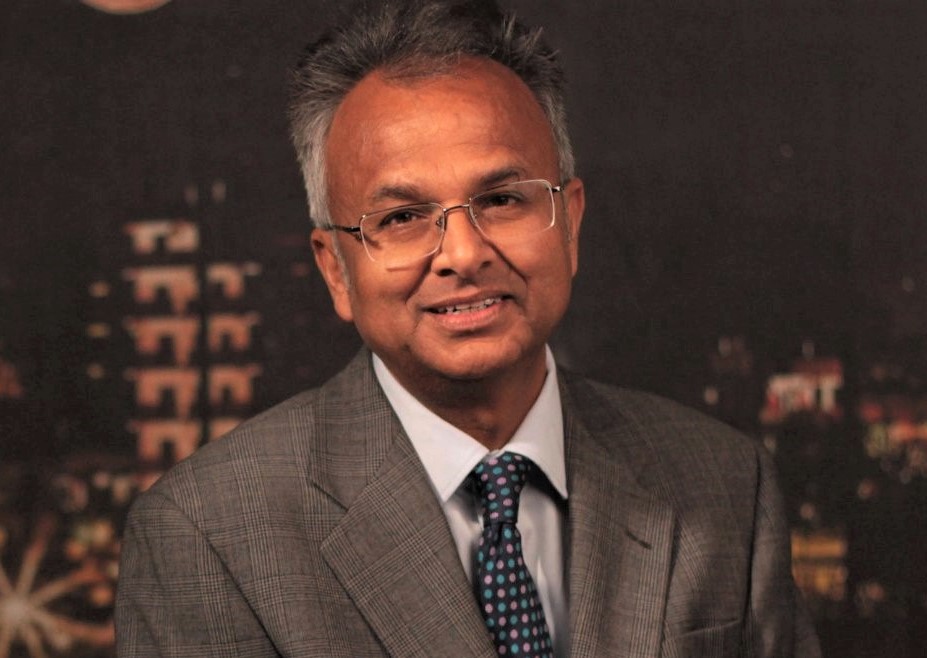
Our friendship started in our college days at Pulchowk Engineering College, where we used to drink 25-paisa tea. Neither of us took up engineering in the long run and we took separate paths in our lives, yet we share a beautiful bond of friendship. Even today, we share our ups and downs and I feel special warmth whenever I meet him. I always found him to be a down-to-earth person who is humble towards everyone he meets.
A shorter version of this profile was published in the print edition of The Annapurna Express on July 14.
related news
Harry Bhandari: An inspiring tale of Nepali immigrant in the US
Sept. 14, 2023, 4:06 p.m.
Baburam Bhattarai: An analysis on Nepal’s underdevelopment
Sept. 4, 2023, 9:36 a.m.
Shyam Goenka: Institutionalizing free press and democracy
Aug. 29, 2023, 7:42 p.m.
Sunil Babu Pant: A guardian of LGBTIQA+ community
March 11, 2023, 10:01 p.m.
Usha Nepal: An inspiration to every working woman
Feb. 25, 2023, 9:42 p.m.
Anupama Khunjeli: A trailblazer banker
Feb. 19, 2023, 12:54 a.m.
Capt Siddartha Jang Gurung: Aviation rescue specialist
Feb. 12, 2023, 1:26 a.m.
Bhuwan Chand: Born to perform
Feb. 4, 2023, 6:36 p.m.




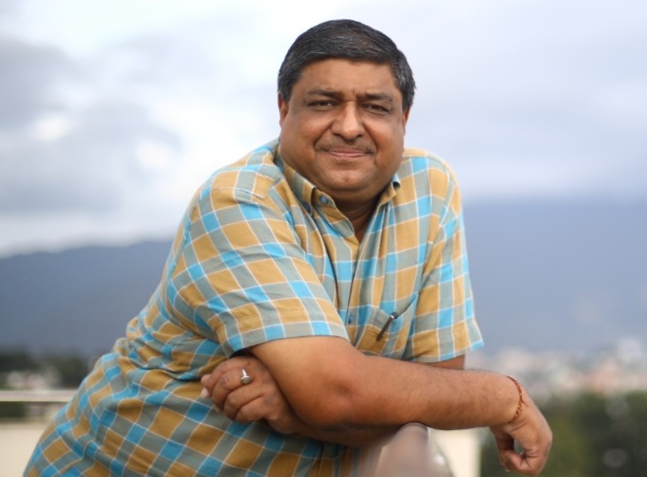





Comments